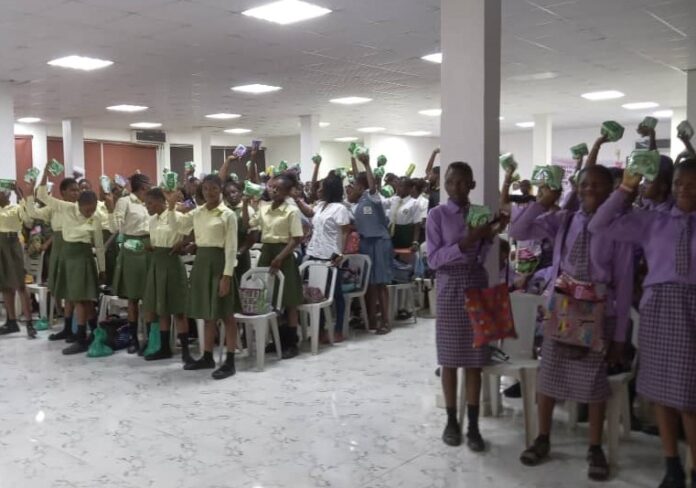By Ishaya Ibrahim
A non-governmental organisation, the Centre for Children’s Health Education, Orientation and Protection (CEE-HOPE), has appealed to the government to emulate countries like Kenya and Rwanda that provide free/subsidized menstrual pads to women.
The NGO made the appeal while marking this year’s World Menstrual Hygiene Day, which is observed every May 28 worldwide.

On Monday, June 5, CEE-HOPE marked the day with a conference held in Lagos. It was attended by hundreds of young schoolgirls drawn from many schools in the state.
CEE-HOPE’s executive director, Betty Abah, said the need to provide women with free or subsidized menstrual hygiene pads has become more urgent due to the dwindling economic situation being faced by many households.

“Many people are losing jobs, and businesses not doing well, hence, women can’t afford menstrual pads. Some cut from their mattresses, clothes or towel to improvise as menstrual pads. And these materials are not safe for them,” she said.
Abah said some countries like Kenya and Rwanda have found a way around the problem of menstrual poverty (inability to afford sanitary pads).
Recall that since 2011, the Kenyan government has been budgeting at least $3 million per year to distribute free sanitary pads in schools in low-income communities.
Abah urged the Nigerian government to emulate the East African country.
Alternatively, Abah said the government could follow the example of Rwanda which removes taxes and levies on sanitary products, including for menstrual pads.
Gender and Program Officer at Safehaven Development Initiative, Margaret Onah Nnang, cautioned against stigmatizing women during their period.

She made the case for free or subsidized menstrual products too for women, saying some girls don’t go to school when on their period because they don’t have money to buy pads.
She said: “Poor menstrual hygiene caused by a lack of education, persisting taboos and stigma, limited access to hygienic menstrual products.
“Poor sanitation infrastructure like running water in schools, undermines women’s and girl’s educational opportunities, health and overall social status worldwide. As a result, millions of women and girls are prevented from reaching their full potential.
“Every girl deserves menstrual hygiene management (MHM) education that empowers her to fully participate in society and lives a healthy, self-determined life.
“Period stigma also results in negative social and economic effects. Because it can seem socially unacceptable to discuss menstrual symptoms, many women keep their period a secret at work.”
The event which attracted about 250 girls, ran simultaneously with Port Harcourt, Rivers State and Otukpo, Benue State which had 200 girls and 140 girls respectively. They were all coordinated by CEE-HOPE.













